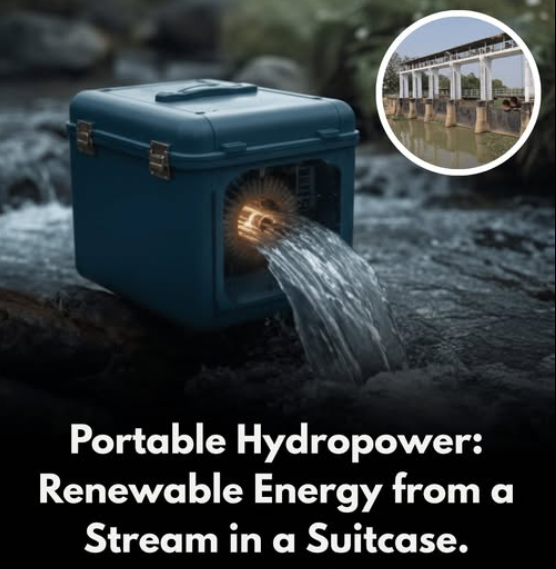 From the Daily Montanan:
From the Daily Montanan:
The Montana Supreme Court on Wednesday upheld a district court ruling in the nation’s first constitutional climate change trial, affirming that the youth plaintiffs have a “fundamental constitutional right to a clean and healthful environment” while revoking two Montana statutes.
The 70-page decision, authored by Chief Justice Mike McGrath, comes 16 months after Lewis and Clark District Court Judge Kathy Seeley ruled in the landmark Held v. Montana lawsuit, explicitly stating that the state’s greenhouse gas emissions are “proven to be a substantial factor in causing climate impacts to Montana’s environment, and harm and injury to the youth plaintiffs.” Seeley’s decision also rolled back two laws enacted by the 2023 legislature that changed the Montana Environmental Policy Act.
The state immediately appealed the decision to the Montana Supreme Court, which heard oral arguments in the appeal in July. The court found in a 6-to-1 decision that Montana’s constitutional guarantee of a “clean and healthful environment” includes a stable climate system, “which is clearly within the object and true principles of the Framers inclusion of the right.”
“Plaintiffs showed at trial—without dispute—that climate change is harming Montana’s environmental life support system now and with increasing severity for the foreseeable future,” the order states. “Plaintiffs showed that climate change does impact the clear, unpolluted air of the Bob Marshall wilderness; it does impact the availability of clear water and clear air in the Bull Mountains; and it does exacerbate the wildfire stench in Missoula, along with the rest of the State.”
The six-justice majority found the law which limited analysis of greenhouse gas emissions during environmental reviews violates the Montana Constitution’s “right to a clean and healthful environment,” and enjoined the state from acting on it.
All this sounds great, but what does it mean in practice? OK, analyses of greenhouse gas emissions are admissible in environmental reviews. But what actions can be taken to force the reductions of these pollutants?
Good News from Montana in Climate Change Mitigation …. Or Is It?
Renewable Energy
Homeschooling
Decent and intelligent people respect the rights of parents to homeschool their children, but there are two reasons for concern: a) socialization, failure to expose children to their peers, so that they may make friends and come to understand the norms of society, and b) the quality of the education itself.
Almost all homeschooling in the United States is conducted on the basis of a radical rightwing viewpoint, normally a blend of evangelical Christianity and Trumpism.
Renewable Energy
The Positive Effects We’ve Had on Others Are Profound, Whether We Know It or Not
 There’s a theory that most people underestimate the positive effects they’ve had on other people.
There’s a theory that most people underestimate the positive effects they’ve had on other people.
Yes, that’s the theme of “It’s a Wonderful Life,” but it’s also the core of the 1995 film “Mr. Holland’s Opus,” in which a music teacher who deemed that his life had been a failure because he never completed writing a great symphony, is gently and beautifully corrected. Please see below.
The Positive Effects We’ve Had on Others Are Profound, Whether We Know It or Not
Renewable Energy
Renewable Energy Concepts Can’t Violate the Laws of Physics
 In the early days of 2GreenEnergy, my people and I were vigorously engaged in finding solid ideas in cleantech that needed funding in order to move forward.
In the early days of 2GreenEnergy, my people and I were vigorously engaged in finding solid ideas in cleantech that needed funding in order to move forward.
I vividly remember a conversation with a guy in Maryland who was trying to explain the (ostensible) breakthrough that he and his team had made in hydrokinetics. When I was having trouble visualizing what we was talking about, he asked me to “think of it as a river in a box.”
“Oh!” I exclaimed. “You mean you take a box full of standing water, add energy to it get it moving, then extract that energy, leaving you with more energy that you added to it.”
“Exactly.”
I politely explained that the laws of physics, specifically the first and second laws of thermodynamics, make this impossible.
He wasn’t through, however, and insisted that, in his office, his people had constructed a “working model.”
Here’s where my tone descended into something less than 100% polite. I told him that he may think he has a working model, but he’s wrong; if he believes this, he’s ignorant; if he doesn’t, but is conducting this conversation anyway, he’s a fraud.
“But don’t you want to come see it?” he implored.
“No. Not only would not fly across the country to see whatever it is you claim to have built, I wouldn’t walk across the street to a “working model” of something that is theoretically impossible.”
—
I tell this story because the claim made at the upper left is essentially identical. You’re pumping water up out of a stream, and then claiming to extract more energy when the water flows back into the stream.
Of course, social media today is rife with complete crap like this. We’ve devolved to a point where defrauding money out of idiots is rapidly replacing baseball as our national pastime.
-
Greenhouse Gases7 months ago
Guest post: Why China is still building new coal – and when it might stop
-
Climate Change7 months ago
Guest post: Why China is still building new coal – and when it might stop
-

 Greenhouse Gases2 years ago
Greenhouse Gases2 years ago嘉宾来稿:满足中国增长的用电需求 光伏加储能“比新建煤电更实惠”
-
Climate Change2 years ago
Bill Discounting Climate Change in Florida’s Energy Policy Awaits DeSantis’ Approval
-
Climate Change2 years ago
Spanish-language misinformation on renewable energy spreads online, report shows
-

 Climate Change2 years ago
Climate Change2 years ago嘉宾来稿:满足中国增长的用电需求 光伏加储能“比新建煤电更实惠”
-
Climate Change Videos2 years ago
The toxic gas flares fuelling Nigeria’s climate change – BBC News
-

 Carbon Footprint2 years ago
Carbon Footprint2 years agoUS SEC’s Climate Disclosure Rules Spur Renewed Interest in Carbon Credits



